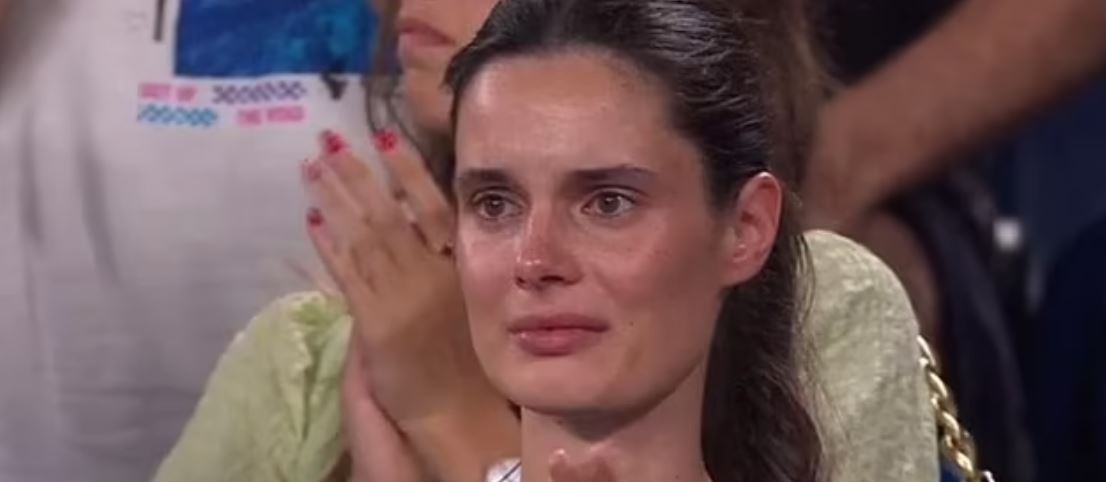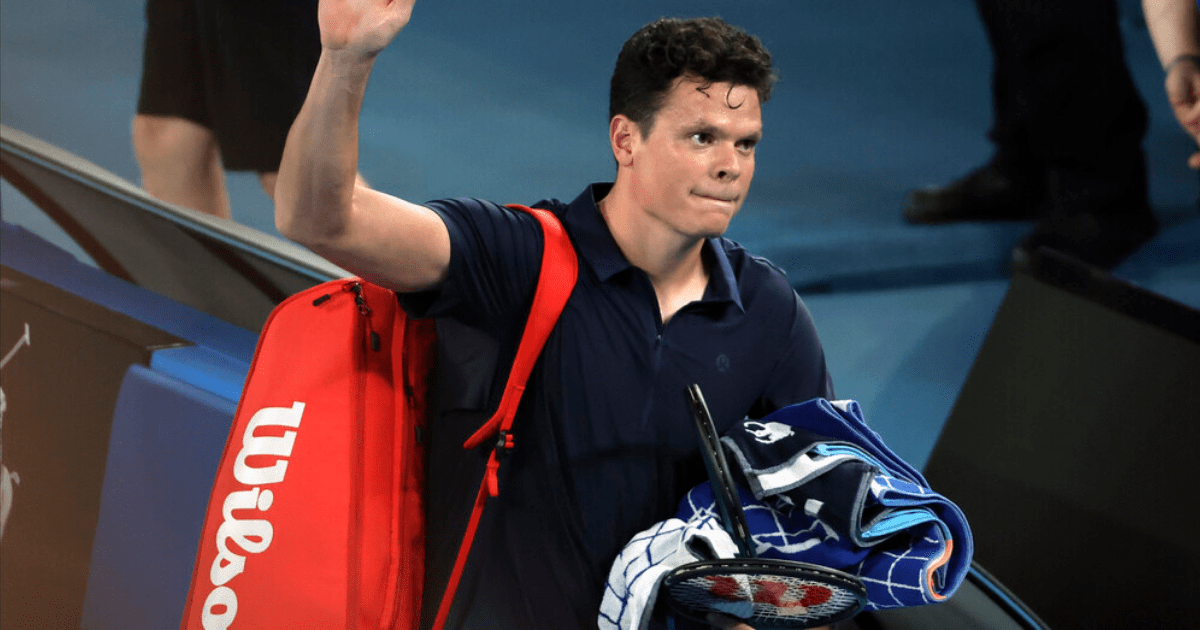Milos Raonic's wife, Camille Ringoir, couldn't hold back her tears as her husband was forced to retire from his first round match at the Australian Open. The 33-year-old tennis star has been plagued by injuries throughout his career, and this latest setback has left many wondering if it could be the end of his time on the major court.
Constant Battle with Injuries
Raonic has faced numerous injuries over the years, undergoing surgery four times to repair his hip, both feet, and his wrist. Two years ago, a torn Achilles tendon was so severe that surgery was not an option, and he had to take a long period of rest instead. These injuries have undoubtedly taken a toll on his physicality and ability to compete at the highest level.
A Sad Farewell?
As Raonic was forced to retire from his match against Alex De Minaur after pushing hard in the opening two sets, his wife's emotional reaction in the crowd raised questions about whether we will see the "big man" on the court again. Tennis legend John McEnroe expressed his doubts, stating, "I'm not sure how much longer he will be able to keep playing, honestly."
Opponent's Disappointment
Alex De Minaur, Raonic's opponent in the match, expressed his disappointment at the outcome. He wished Raonic a speedy recovery and acknowledged the Canadian's incredible talent and contribution to the sport. De Minaur also noted that he had to work hard to chase Raonic's serve throughout the match and hoped to see him back in action soon.

It's a heartbreaking moment for Raonic and his fans as they come to terms with the possibility of his retirement. Only time will tell if the tennis star can overcome his injuries and make a triumphant return to the court.
Frequently Asked Questions
What does the daily training schedule of a top tennis player look like?
The daily training regimen of a top tennis player is both rigorous and meticulously structured. It often includes several hours on the court, focusing on technical drills, tactical practices, and match play situations. Players also participate in training sessions that are designed to improve strength, endurance, and agility. These sessions are complemented with flexibility and recovery exercises, such as massages, stretching, or physiotherapy. Nutrition and psychological coaching play a major role in ensuring that athletes perform at their best both physically and mentally.
How does mental and psycho-social training affect tennis training?
Tennis players need to be trained in mental and emotional training just as much as they do physical training. The players need to learn how they can manage their stress levels, stay focused, and deal with the emotional ups and downs of competition. Visualization, goal-setting and mental rehearsals can be common techniques. A sports psychologist helps players to build resilience, develop strategies for dealing with pressure and raise their mental game.
How does a tennis player manage school and training?
Balance between academic obligations and intensive training schedules can be difficult for aspiring players. Time management, prioritization skills and sometimes creative scheduling are required. Online schooling programs and flexible academic schedules can help young athletes manage their training and travelling schedules. Families, coaches and educational institutions can also play a vital role in helping athletes achieve their athletic goals without compromising their studies.
What type of fitness is necessary for tennis players?
Tennis is physically demanding and requires a mixture of aerobic endurance, strength and power. Tennis players’ fitness training often includes cardiovascular exercises to increase endurance, explosive and plyometric exercises to increase speed and power, strength training, and agility drills to improve footwork and court movement. Exercises that improve core stability and balance are essential to building the endurance and coordination needed for tennis.
What is the importance of nutrition and diet for a tennis athlete?
Nutrition and diet are vital for any athlete aiming to perform at the highest level, and tennis players are no exception. A proper diet is essential for intense training, as it helps to provide energy, promotes recovery, and reduces injury risk. Diets of elite athletes typically include a balance of carbohydrates, protein, and fats as well as essential vitamins and minerals. A good fluid balance will help you avoid fatigue and keep your concentration high during the game.
Statistics
- Strength and conditioning coaches emphasize core strength, noting that an increase in core stability can improve shot accuracy by up to 43%.
- Studies show that superior agility and speed among tennis players can reduce their reaction time by up to 30%, which is crucial during high-level matches.
- Research indicates that junior tennis players who compete in international tournaments gain significant psychological advantage and experience, with participation leading to a 50% better transition into professional rankings.
- Nutritionists report that a tennis player’s diet should consist of about 55-60% carbohydrates, 15-20% protein, and 20-25% fats during intense training periods.
- On average, it’s estimated that only 1 in 5000 high-level junior tennis players will develop into internationally ranked professionals.
External Links
essentialtennis.com
tennisfitness.com
myprocoach.net
itftennis.com
topendsports.com
How To
How to Use Video Analysis to Improve Your Tennis Game
Video analysis will help you improve your game. Start by recording all of your tennis matches and practice sessions. You can use the video footage to correct any mistakes you made in terms of your technique or your tactical play. Take note of your shot selection, positioning and court movement. Work with a coach to analyze the footage and receive objective feedback on what you need to work on. Slow-motion and freeze frame can be used to analyze specific aspects of your technique. By incorporating regular video analysis into training, you can track your progress and improve your game based on the data.
Did you miss our previous article…
https://www.sportingexcitement.com/tennis/cruz-hewitt-hopes-to-follow-in-fathers-footsteps-as-grand-slam-champion/

